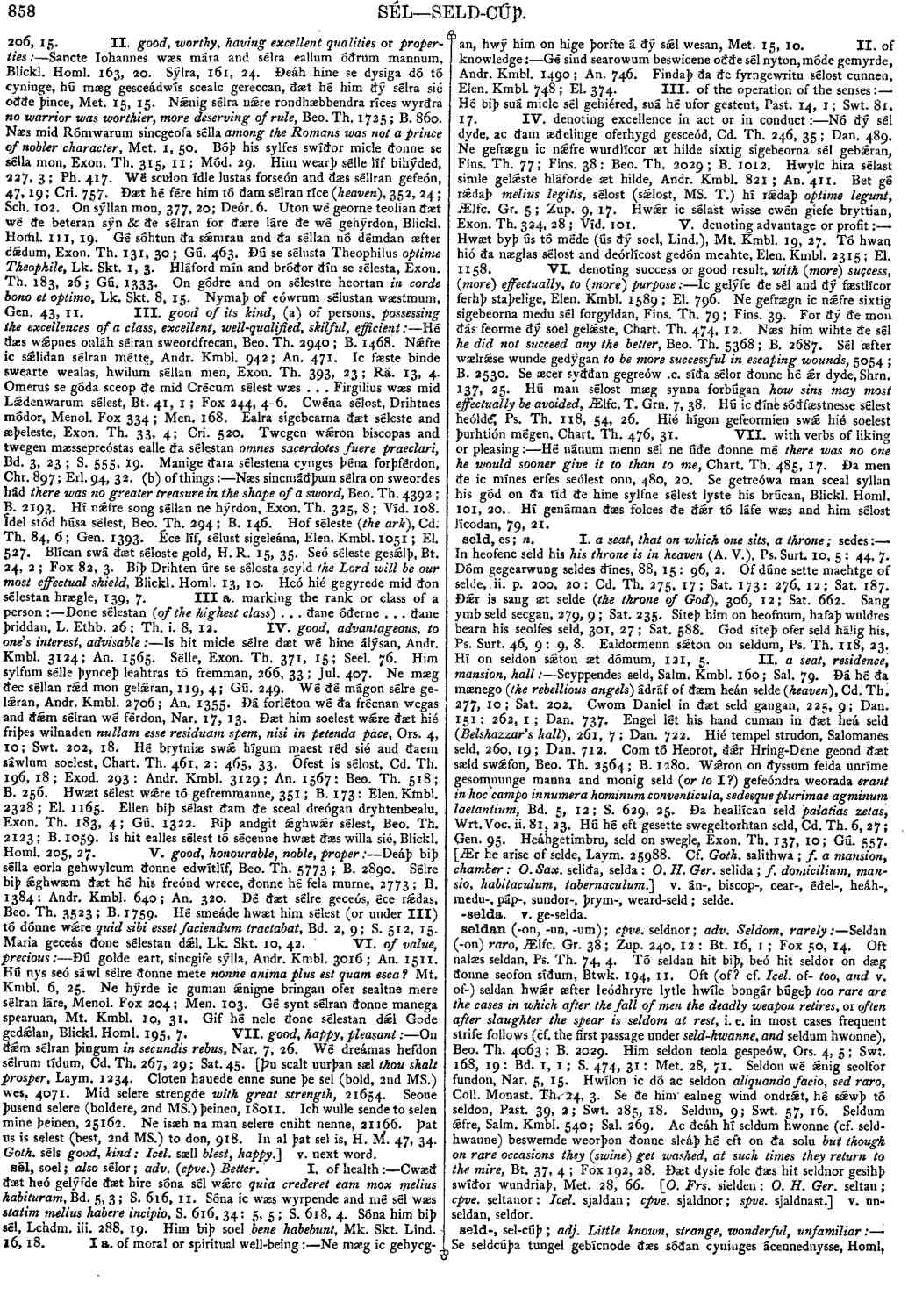seldan
- adverb
-
Seldan (-on)
raro,
- Ælfc. Gr. 38 ; Zup. 240, 12 : Bt. 16, 1 ; Fox 50, 14.
- Oft nalæs seldan. Ps. Th. 74, 4.
-
Tó seldan hit biþ, beó hit seldor on dæg ðonne seofon síðum,
- Btwk. 194, 11.
-
Oft (of ? cf. Icel. of- too, and v. of-) seldan hwǽr æfter leódhryre lytle hwíle bongár búgeþ too rare are the cases in which after the fall of men the deadly weapon retires, or often after slaughter the spear is seldom at rest, i. e. in most cases frequent strife follows (cf. the first passage under
seld-hwanne, and
seldum hwonne),- Beo. Th. 4063 ; B. 2039.
-
Him seldon teola gespeów,
- Ors. 4, 5 ; Swt. 168, 19 : Bd. 1, 1 ; S. 474, 31 : Met. 28, 71.
- Seldon wé ǽnig seolfor fundon. Nar. 5, 15.
-
Hwílon ic dó ac seldon
aliquando facio, sed raro,
- Coll. Monast. Th. 24, 3.
-
Se ðe him ealneg wind ondrǽt, hé sǽwþ tó seldon,
- Past. 39, 2 ; Swt. 285, 18.
- Seldun, 9 ; Swt. 57, 16.
-
Seldum ǽfre,
- Salm. Kmbl. 540 ; Sal. 269.
-
Ac ðeáh hí seldum hwonne (cf. seld*-*hwanne) beswemde weorþon ðonne sleáþ hé eft on ða solu
but though on rare occasions they (swine) get washed, at such times they return to the mire,
- Bt. 37, 4 ; Fox 192, 28.
-
Ðæt dysie folc ðæs hit seldnor gesihþ swíðor wundriaþ,
- Met. 28, 66.
Bosworth, Joseph. “seldan.” In An Anglo-Saxon Dictionary Online, edited by Thomas Northcote Toller, Christ Sean, and Ondřej Tichy. Prague: Faculty of Arts, Charles University, 2014. https://bosworthtoller.com/27365.
Checked: 0